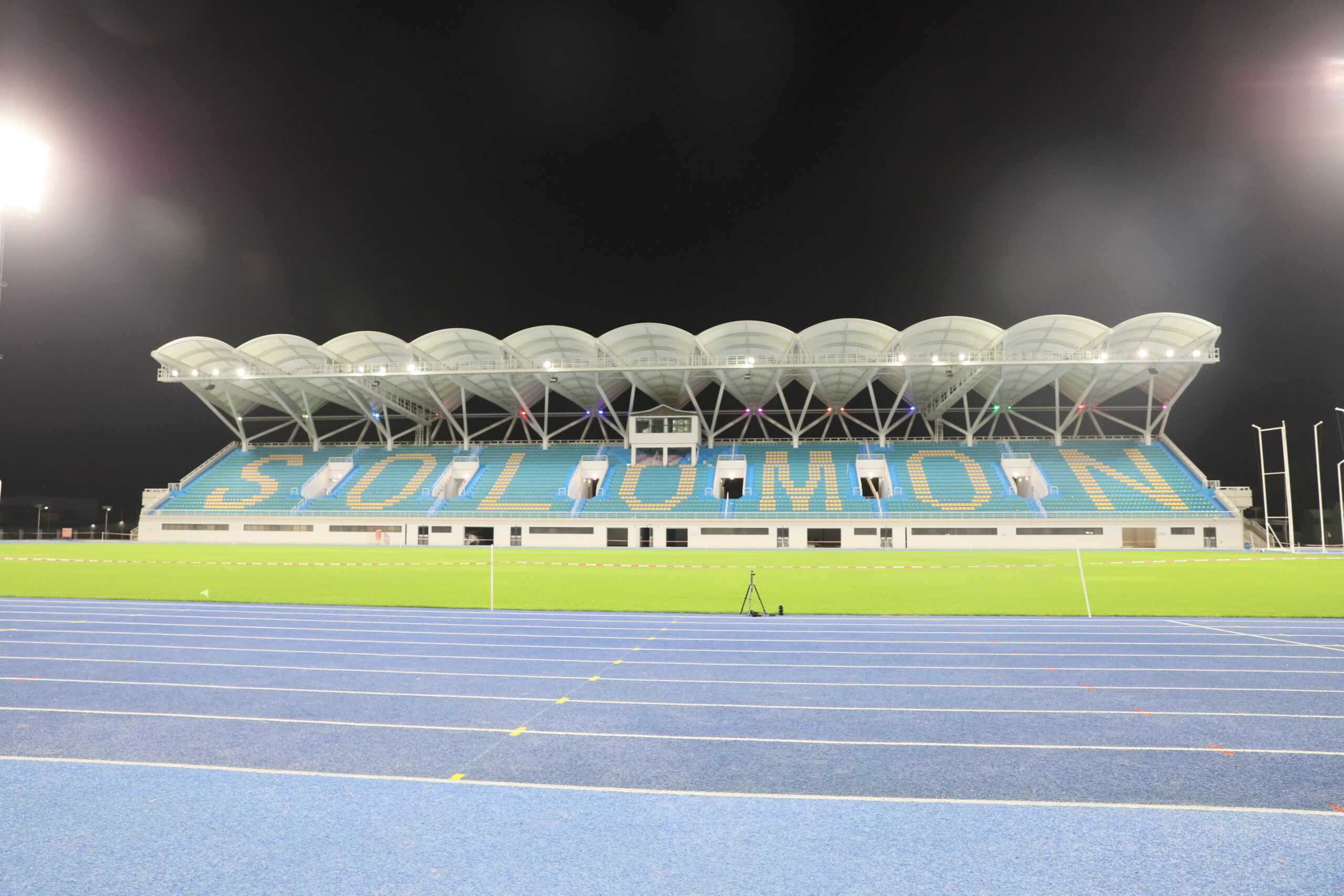
By JOSEPH SPLITZ
Much has been said in the print media, social media and other media platforms about the newly built stadium for the coming Pacific Games (PG) later this year 2023.
The for argue that it will bring about much-needed benefits for the country, while the critics argue that the newly built stadium will bring this country economically down on its knees.
China’s global influence can be seen across various domains, from technology to infrastructure and, more recently, sports.
For the purpose of this article, I’ll support their argument later on that this new stadium is the strategy the PRC adopted to lure and win the minds of the ordinary people of the Solomon Islands, but the country will know its fate years after the Pacific Games.
The Asian giant has been funding and constructing stadiums in countries around the world, particularly in Africa, the Caribbean, and the South Pacific.
While these projects may initially seem beneficial, providing countries with much-needed sports infrastructure, they also have potential negative impacts.
This article aims to highlight some of these drawbacks, using specific examples.
Debt Dependency
One of the most common criticisms of China’s stadium construction spree is that it often leads to significant debt for the recipient countries.
The stadiums, while impressive, are expensive. For countries with already strained budgets, repaying these debts can be challenging.
For instance, Grenada’s National Cricket Stadium, renovated with the help of Chinese funding, has added to the country’s debt burden.
Similarly, the construction of the Estadio Nacional in Costa Rica was financed by a $100 million loan from China, contributing to the nation’s escalating debt.
Questionable Quality and Sustainability
In some cases, the quality of the stadiums built by China has been called into question.
The Estadio Nacional in Costa Rica, which opened in 2011, started showing signs of deterioration within a few years, including rusting and water damage.
Similarly, Zambia’s Levy Mwanawasa Stadium, built by China, had to undergo repair work due to extensive cracks just a year after its completion.
Moreover, these stadiums often require high maintenance costs, which the receiving countries may struggle to afford.
This can lead to rapid deterioration of the facilities, negating the initial benefits of having a new stadium.
Underutilized Facilities
Many of the stadiums built by China in foreign countries become underutilized after completion.
They are often constructed in regions where the local population lacks the resources to make regular use of such large-scale facilities.
For example, the multi-million dollar Thomas Sankara Stadium in Burkina Faso, funded by China, is seldom used due to its location and the lack of a robust sports culture in the region.
This underutilization leads to wasted resources that could have been better spent on more pressing local needs.
Political Leverage
China’s stadium diplomacy also carries geopolitical implications. In many cases, the investment in sports infrastructure is tied to political conditions.
In Costa Rica, the construction of the Estadio Nacional was preceded by the country severing diplomatic ties with Taiwan in favor of China.
This often leads to countries feeling pressured to align with China politically, in return for infrastructure investments.
This can undermine local autonomy and sovereignty, and create geopolitical tensions.
In conclusion, while China’s global stadium-building spree may seem like a boon to many developing nations, it is important to consider the potential drawbacks.
These include increased debt burdens, questions around quality and sustainability, underutilization of facilities, and the potential for political leverage.
As China continues to extend its influence through sports diplomacy, it’s crucial for recipient nations to carefully evaluate the long-term implications of these investments.
Throughout last year 2022, I followed up and always read one of our local experts on China Ph.D. Candidate Frank Sade Bilaupaine’s writing on many issues about China, for the purpose of this, I’m asking him if he’s in the country or outside to respond to this, how can you Frank convince me and others that this newly built sports stadium and China’s stadium diplomacy will not put this country on its knees and will not get this country into debts in the future to China (PRC).
